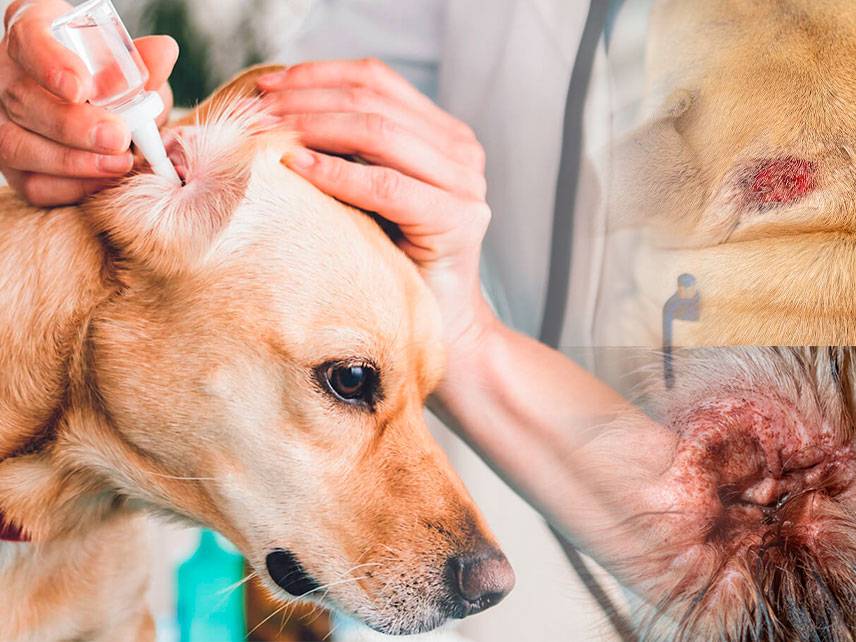Dogs are like members of the family, and keeping them healthy is a priority for many pet owners. Unfortunately, there are a variety of infections that can affect our canine friends, ranging from mild to deadly. Knowing the most common infections in dogs, as well as the symptoms, treatments, and prevention methods, can help you keep your pup healthy and happy.
Top 10 Most Common Infections in Dogs
1. Upper Respiratory Infections (URI):
URIs are caused by bacteria, viruses, or parasites and can cause coughing, sneezing, fever, and discharge from the eyes, nose, and mouth.
2. Kennel Cough:
Kennel Cough is a highly contagious respiratory infection caused by a combination of bacteria, viruses, and parasites. It is usually mild and can be treated with antibiotics.
3. Parvovirus:
Parvovirus is a highly contagious virus that affects the gastrointestinal tract of dogs and can cause severe dehydration, vomiting, and bloody diarrhea.
4. Leptospirosis:
Leptospirosis is an infection caused by bacteria that can be spread through contact with infected urine. It can cause fever, vomiting, and jaundice.
5. Giardia:
Giardia is a protozoan parasite that can cause diarrhea, vomiting, weight loss, and dehydration.
6. Distemper:
Distemper is a virus that can cause fever, coughing, and discharge from the eyes and nose.
7. Heartworm:
Heartworm is a type of parasite that can damage the heart and lungs of dogs if left untreated.
8. Lyme Disease:
Lyme Disease is a tick-borne infection that can cause fever, joint pain, and fatigue.
9. Fungal Infections:
Fungal infections can cause skin lesions, hair loss, and irritation.
10. Ear Infections:
Ear infections can be caused by bacteria, yeast, or mites and can cause pain, itching, and discharge.
What are the Symptoms of an Infection in a Dog?
The symptoms of an infection in a dog will depend on the type of infection. Generally, signs can include fever, lethargy, loss of appetite, vomiting, diarrhea, coughing, sneezing, and discharge from the eyes, nose, and mouth. In more severe cases, seizures, difficulty breathing, and paralysis can occur.
How Do You Know if Your Dog has a Bacterial Infection?
A bacterial infection can be difficult to diagnose without the help of a veterinarian. Generally, a veterinarian will take a sample of the infected area and analyze it for bacteria or other pathogens. Blood tests can also be used to look for signs of infection.
What is the Deadliest Disease for Dogs?
The deadliest disease for dogs is canine distemper virus. This virus can cause severe neurologic symptoms, including seizures, paralysis, and difficulty breathing. There is no cure, and the mortality rate can be as high as 80%.
How Do You Treat an Infected Dog?
The treatment of an infected dog will depend on the type of infection. Generally, antibiotics will be prescribed to treat bacterial infections, while antiviral medications will be prescribed to treat viral infections. In some cases, surgery may be necessary to remove the infected area.
How Long Can Infection Last in Dogs?
The length of an infection in a dog can vary depending on the type of infection and the treatment received. Generally, bacterial infections can last from a few days to a few weeks, while viral infections can last from a few weeks to several months.
How Can I Treat an Infected Dog at Home?
Treating an infected dog at home can be difficult and should be done with caution. Generally, it is best to consult with your veterinarian for advice on how to treat your dog's infection.
Can a Dog Fight an Infection Without Antibiotics?
In some cases, a dog may be able to fight off an infection without the use of antibiotics. However, this is not always the case and can depend on the severity of the infection. Consulting with your veterinarian is the best course of action.
What Happens if an Infection Goes Untreated in Dogs?
If an infection goes untreated in dogs, it can become more severe and can even be fatal. Untreated infections can cause organ damage, paralysis, and even death. Therefore, it is important to seek treatment for your pet as soon as possible.





